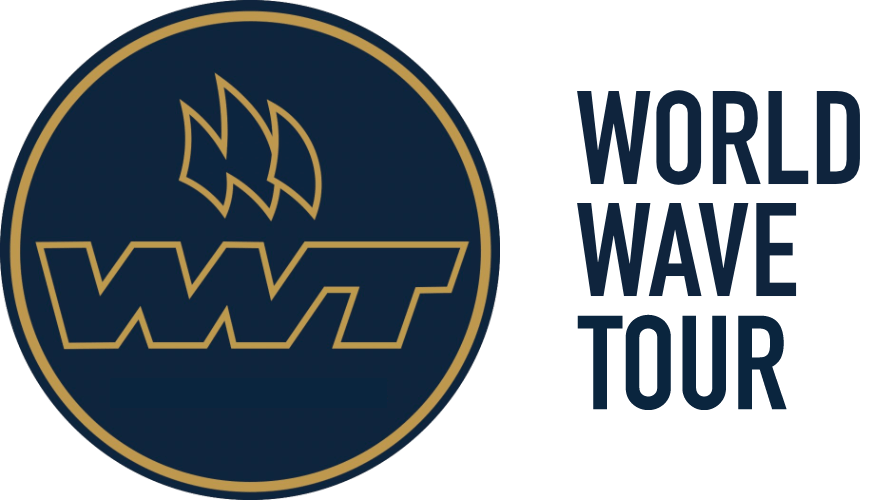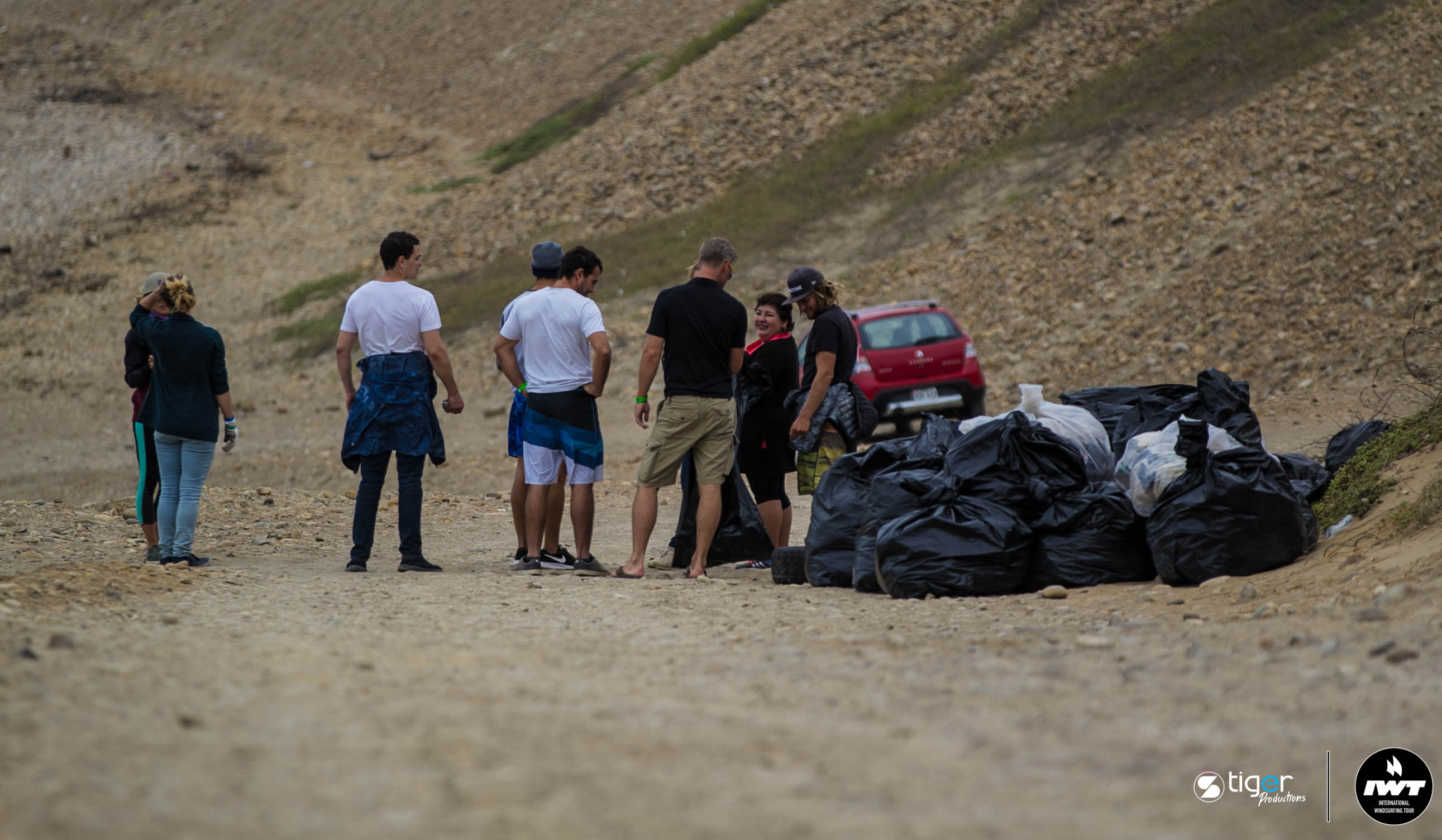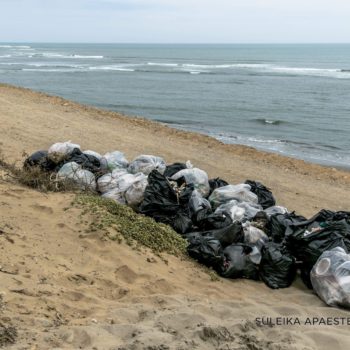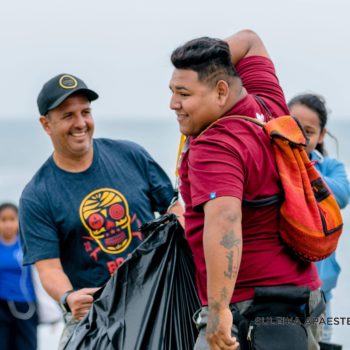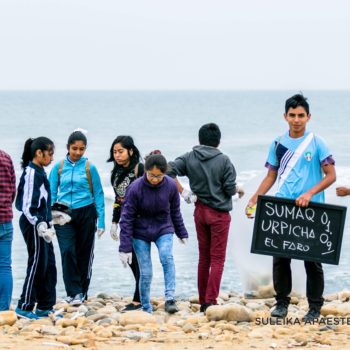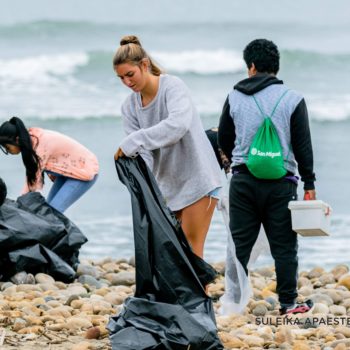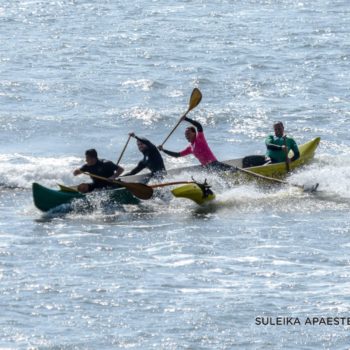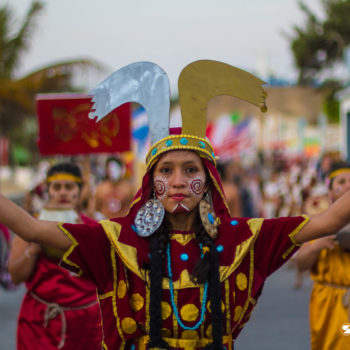Opening day of the IWT Pacasmayo Classic joined together 48 riders from 19 different countries. Due to small waves Head Judge Simeon Glasson called a lay day for competition. Registered riders, crew and spectators joined in with approximately 60 school children from the local schools for a beach clean up.
The IWT spoke with beach clean up organizer Denise Blondet.
IWT: What was your inspiration for creating the beach clean up today?
DB: I started a month ago when I came to Pacasmayo and spoke with the schools and professors. I’ve always been in love with the ocean, so I want to clean it and take care of it.
IWT: How did you get so many children to attend?
DB: All the kids had to get permission from their parents to travel for a school project on the weekend. Some traveled an hour drive to join in on the project. The professor is very reliable and trustworthy.
IWT: Was there anything provided for the children?
DB: In the morning we gave the kids oranges and after the clean up all the children had a nice lunch provided by sponsors.
IWT: What are future plans with this group?
DB: This professor organizes many beach clean ups. I live in Lima, so it is a long journey for me to come to Pacasmayo, but when I come for windsurfing, I enjoy giving back to this area by helping to clean the beach, educating the local community and cleaning the beach.
IWT: When the rubbish is picked up, where is it taken to?
DB: The recycling is taken to a communal place where it is sold to recycling companies and the rubbish is taken to the municipality.
IWT: What is the garbage disposal system in Pacasmayo?
DB: Many people in Pacasmayo put their rubbish on the beach. There is not a great system in the town for disposing of garbage.
IWT: If you were living in Pacasmayo, what would you do with your garbage?
DB: The first thing is to use less plastic and to recycle more. It is important to take the garbage far away from the ocean and rivers and have it buried. The best thing is to reuse what you already have and not accept the plastic bags handed at markets. Using products like metal straws and wooden toothbrushes goes a long way to reduce rubbish.
IWT: Any closing things you would like readers to know?
DB: I work a lot of projects like this near Lima and I have never seen the commitment, dedication and organization that the kids in Pacasmayo have here. The kids were focused and very organized. they weighed all the trash and knew what items should be recycled. Professor Cesar has a lot to do with that. He teaches the kids to respect the ocean and nature. He is an inspiration for all the kids.
After the beach cleanup, it was a bit of a rest day for most riders. Some chose to sail in the small wave conditions, while others took time to do board repairs and other maintenance.
The evening kicked off with a parade through town celebrating the Mochica culture and the opening of the IWT Pacasmayo Classic. After a lengthy walk through town, everyone gathered for a traditional dance and ceremony. It was quite a spectacular reenactment with costumes, dancing and a ritual fight, culminating in a sacrifice to the gods.
Hopefully this brings good luck to the Pacasmayo Classic, which appears destined for some spectacular conditions later in the week. The current plan for competition is to complete youth and amateur heats early in the week followed by the pro men and women heats when the waves truly fill in.
